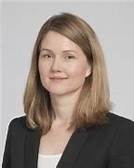It’s no secret that the Nobel Prize is one of the most important awards in the world, representing global recognition of excellence in various fields. The prize is awarded annually to individuals who have made outstanding contributions in five fields: physics, chemistry, medicine, literature and peace.
This year, the Nobel Prizes will be awarded between October 2 and 9, in Stockholm and Oslo, to people who have contributed to the “good of humanity”, according to the desire of their creator, the Swede Alfred Nobel (1833- 1896). .
How the Nobel Prize was born
The prize was created by Swedish inventor and businessman Alfred Nobel, best known for developing dynamite. In his will, Nobel determined that the majority of his fortune would be allocated to the creation of a fund to award prizes to people who had contributed to the “good of humanity.”
The awards have been given since 1901 and have been given to more than 900 people from around the world. Some of the most famous winners include Marie Curie, Albert Einstein, Martin Luther King Jr. and Nelson Mandela. Below we will show you five interesting facts about this honor.
Reluctantly absent
Since 1901, six Nobel Peace Prize laureates have been unable to attend the award ceremony in Oslo.
In 1936, German journalist and pacifist Carl Von Ossietzky was sent to a Nazi concentration camp.
In 1975, Soviet physicist and dissident Andrei Sakharov was represented by his wife, Elena Bonner.
In 1983, Polish trade unionist Lech Walesa refused to take part in the ceremony, fearing he would not be able to return to his country.
Under house arrest, the Burmese opponent Aung San Suu Kyi, awarded in 1991, was authorized to go to Oslo by the military junta which governed Myanmar, but decided not to go there.
In 2010, Chinese dissident Liu Xiaobo was imprisoned. The prize was placed on a chair, symbolically empty.
And in 2022, imprisoned Belarusian human rights activist Ales Bialiatski was represented by his wife, Natalia Pinchuk.
A prize (almost always) for the living
Since 1974, the statutes of the Nobel Foundation provide that the prize cannot be awarded posthumously, unless the death occurs after the announcement of the name of the laureate.
Until the rule was written, only two figures were included, both Swedish: the poet Erik Axel Karfeldt (Literature, in 1931) and the allegedly assassinated UN Secretary General Dag Hammarskjöld (Nobel Prize for peace in 1961).
It also happens that the prize is not awarded as a tribute to a deceased winner, as in 1948, after the assassination of Gandhi.
A recent laureate did not have the opportunity to respond to the famous phone call announcing the Nobel: after the medicine prize, awarded in 2011 to the Canadian Ralph Steinman, we learned of his death three days earlier, although he remains on the list of winners.
Few women included
Women represent only 6% of the total winners, with 60 recipients since 1901.
The Nobel Prize winner in economics is last among women, with only 2.2%. Overall, scientific grants were awarded to women in 3.7% of cases. The literature is also aimed at men (14.2% went to women). As for the Nobel Peace Prize, only 16% of winners are women.
Since the start of the 21st century, 31 women have been rewarded, three times more than in the previous two decades. The year 2009 marked a record for women, with five prizes, including that in economics, awarded to the American Elinor Ostrom.
However, the first person to win a Nobel twice was a woman: the Frenchwoman of Polish origin Marie Curie (Physics in 1903 and Chemistry in 1911).
Mathematics
Why is there no Nobel Prize in mathematics? Legend has it that Alfred, inventor of dynamite, took revenge on his own lover, the mathematician Magnus Gösta Mittag-Leffler.
There is no evidence to support this hypothesis and the most likely explanation is that in 1895, the year Nobel wrote his will, there was already a prize in Sweden for this discipline.
Furthermore, at the beginning of the 20th century, applied sciences enjoyed the support of elites and public opinion, for whom humanity’s debt to mathematics was unclear.
Ceremonies on December 10
The prizes are announced in early October, but are awarded in Stockholm and Oslo on December 10, the anniversary of Nobel’s death.
In Stockholm (scientific, economic and literary prizes), the ceremony ends with a banquet for around 1,300 people at the city hall, in the presence of King Carl Gustaf XVI and Queen Sílvia.
In Oslo (Nobel Peace Prize), a thousand guests gather for the ceremony also at the City Hall, before a small group banquet.
The Russian ambassador was excluded from the ceremony in Stockholm due to the war in Ukraine. In Oslo, the Norwegian Nobel Institute plans to invite all the ambassadors.
Join the Itatiaia community on Whatsapp and receive the main news of the day directly on your cell phone.
Click here and register.

“Prone to fits of apathy. Beer evangelist. Incurable coffeeaholic. Internet expert.”







